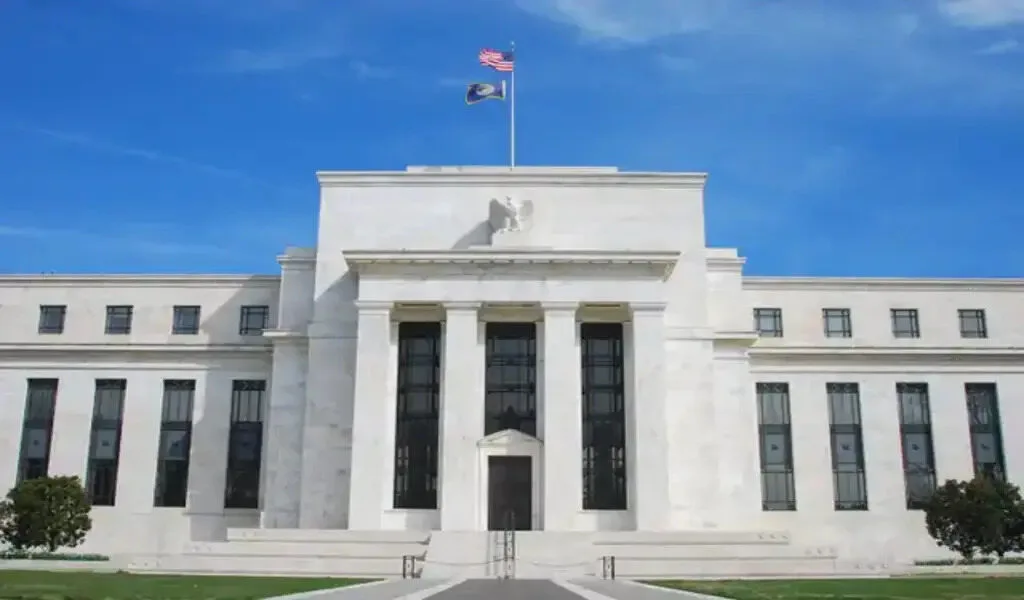News
The Federal Reserve Was Sued By Big Banks Over Annual Stress Tests.

(VOR News) – A number of financial firms and industry associations have taken legal action against the Federal Reserve of the United States in reaction to the annual stress tests that are administered to banks.
In addition to the American Bankers Association, the Ohio Bankers League, the Ohio Chamber of Commerce, and the United States Chamber of Commerce, the Bank Policy Institute, which is a group that represents large financial institutions such as JPMorgan, Citigroup, and Goldman Sachs, is joining the other organizations in filing the lawsuit.
The plaintiffs have said that the purpose of the action is to “resolve longstanding legal violations by subjecting the stress test process to public input as required by federal law.”
The Federal Reserve litigation aims to achieve this goal.
Despite the fact that the organizations have said that they do not have a negative stance on stress testing, they are of the opinion that the method that is now being utilized is insufficient and “produces vacillating and unexplained requirements and restrictions on bank capital.”
It is standard procedure for the Federal Reserve to carry out a stress test on an annual basis. This test ensures that financial institutions have adequate reserves to cover the risk of bad loans and establishes the maximum amount of share repurchases and dividends that can be distributed.
After the market closed on Monday, the Federal Reserve issued a statement indicating that it is considering adjustments to the stress tests applied to banks.
Additionally, the Federal Reserve will seek public feedback on “significant changes to improve the transparency of its bank stress tests and to reduce the volatility of resulting capital buffer requirements.”
This information was included in the announcement. As a result of “the evolving legal landscape,” the Federal Reserve claimed that it had made the choice to modify the tests. This statement was made in reference to the changes that have taken place in administrative laws over the course of the past several years.
There were no particular modifications that were described in this paper that were provided to the framework of the yearly stress testing before it was implemented. There is a likelihood that the revisions will be regarded as a win by the major banks; yet, it is possible that those modifications will be too little, too late.
Furthermore, it is possible that the revisions will not go far enough to satisfy the concerns of the banks regarding onerous capital requirements. This is a possibility.
The Federal Reserve says the changes will not materially affect capital requirements.
It was stated in a statement that was issued by Greg Baer, the Chief Executive Officer of the Bank of the Philippines, that “The Board’s announcement today is a first step towards transparency and accountability.”
Baer expressed his support for the Federal Reserve’s action. The statement issued by Baer, on the other hand, was a veiled allusion to additional actions. He stated, “We are reviewing it closely and considering additional options to ensure timely reforms that are both good law and good policy.”
The British Bankers Association (BPI) and the American Bankers Association (ABA) are two examples of organizations that have voiced their concerns in the past about the stress test procedure.
The aforementioned organizations have argued that the process is not transparent and has resulted in increasing capital rules, which have a detrimental effect on the lending practices of banks and the expansion of the economy.
The groups claimed in July that the Federal Reserve had broken the Administrative Procedure Act by not asking for public comment on its stress scenarios and by maintaining strict confidentiality about supervising models. Both of these acts were claimed to have happened.
SOURCE: CNBC
SEE ALSO:
American Airlines Has Canceled All Domestic Flights Due to a Technical Issue.
Joe Biden Commutes Sentences For 37 Of The 40 Federal Death Row Prisoners.





























